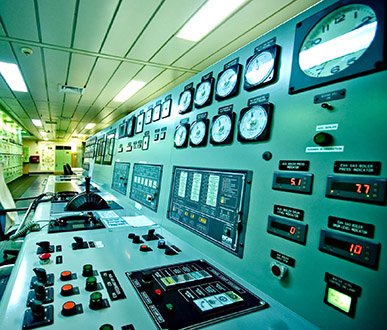The electrical system is a ship’s lifeline. It acts as the vessel’s neural system. Without a well-functioning electrical system, you risk being stuck at the dock or stranded at sea. The electrical system of a ship is crucial for its overall operation and safety. It provides power for essential functions such as propulsion, navigation, communication, and safety systems. Modern ships, especially electric and hybrid ones, rely heavily on electrical systems to drive their engines and operate smoothly. Safety is paramount, and reliable electrical power ensures adequate lighting, emergency systems, and alarms are always operational. Navigation aids like GPS, radar, and sonar, as well as communication systems, are dependent on a stable electrical supply to function effectively.
Operational efficiency is enhanced by electrical systems through automation and control of machinery and environmental conditions, enabling efficient cargo handling and engine control. The comfort of the crew and passengers is also tied to the electrical system, which powers HVAC, lighting, and entertainment systems. Environmental control systems, including pollution control devices and ballast water treatment, rely on electricity to maintain compliance with environmental regulations.
Additionally, redundancy and reliability are vital aspects, with ships equipped with backup generators and redundant systems to ensure continuous power supply and prevent failures. Regular maintenance and monitoring of electrical systems are essential to avoid disruptions that could compromise the ship’s operations and safety. In summary, the electrical system is fundamental to the safe, efficient, and comfortable operation of a ship, supporting a wide range of critical functions.
Safety doesn’t happen by accident; regular maintenance is the key. A well-maintained ship is a safe ship. Leave the maintenance to the pros; safety is worth the investment.
Suntek
Investing in quality components now can save you from costly repairs later.
Early detection can save lives—stay alert to signs of trouble.


